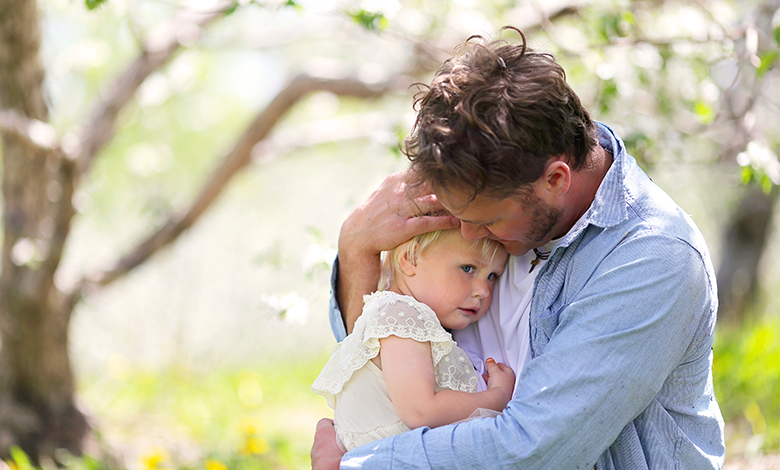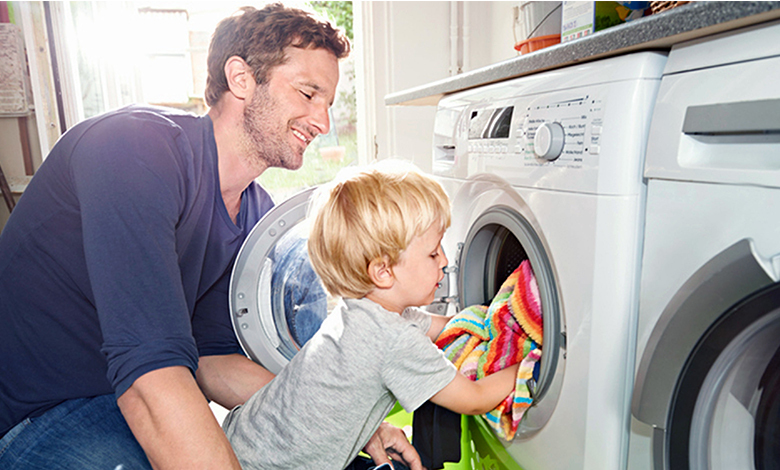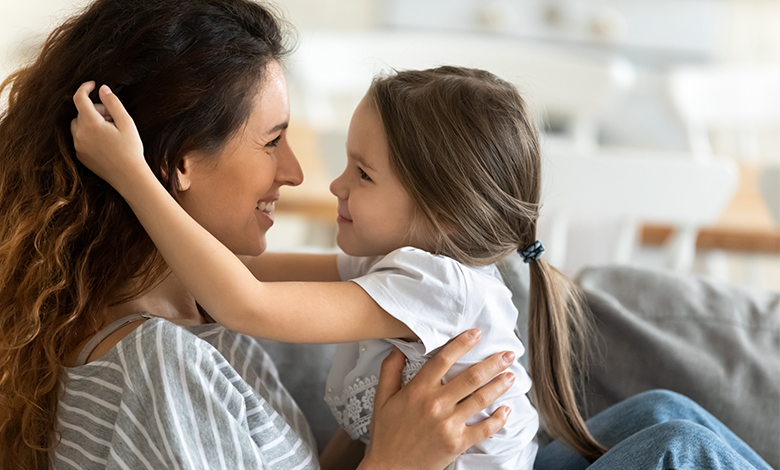- Separation anxiety is a common developmental phase starting at around 7 months
- Babies have limited understanding and avenues for expression
- Practise disappearing and reappearing in developmentally appropriate ways
How to handle your child’s separation anxiety

Key points
Dr Justin Coulson - Leading Parenting Expert
Somewhere between 6 and 7 months of age, you might notice your child begins to protest when you leave the room. While separation anxiety (and the tears that come with it) can be tough, it’s useful to know that not only is it normal, it is a developmental reality for most children.
What is separation anxiety?
Separation anxiety is the unease your child feels when they are apart from you. Our children are biologically programmed to depend on the individual at the top of their attachment hierarchy, which – more often than not – is their mother. When separated from their most trusted carer, it’s common for your child to feel fear and to express this in the best (and sometimes only) way they know how – crying. This anxiety is natural from an evolutionary perspective. After all, the survival of an infant is entirely reliant on the presence of its caretakers. Separation anxiety normally starts at around 7 months and peaks around 18 months. Some textbooks say the peak could be as early as 14 months, but in my own experience of raising 6 kids and talking to other families, it can last well beyond 24 months, depending on the child. Your child’s temperament will also have an impact on how strong their separation anxiety is.
Why does separation anxiety happen?
Separation anxiety develops in tandem with object permanence, which is an understanding that when things disappear, they aren’t gone forever. As your little one grasps this concept (between 4 and 7 months), they begin to realise that when you’re not with them, you’re somewhere else. But because young children don’t develop ‘theory of mind’ – a comprehension that other people have their own perspectives and experiences – until about the age of 5, they don’t understand why. Separation anxiety happens because our kids want us to stay close to them, to nurture them. They think if we disappear, it might mean we’re never coming back. Their world stops making sense. On top of that, they don’t know how to regulate their emotions or behaviour and they don’t have the language to express themselves. The only thing they know how to do is scream. And scream they do. This can be traumatic for parents and it can become traumatic for the child if we don’t manage it well.
What can parents do about separation anxiety?
Firstly, cover off the basics. Make sure they’ve got a full tummy, a dry nappy, and that they’re comfortable and well rested. These are all needs that will exacerbate any clinginess. To help ease separation anxiety, we need to assure our child that when we leave, we always come back. The main way to do this is to practise disappearing and reappearing. This happens naturally through a favourite game of parents and babies – peek-a-boo. You can start playing peek-a-boo with your little one from the age of 4 -6 months. You can play for hours – research shows your child will not get bored of it. That said, keep the time you spend ‘gone’ to a few moments. Exposing children to long absences can make them distressed that you’re never coming back. That actually exacerbates the problem and can bring anxiety on. The next thing you can do, in homes where there is another caregiver, is give the child opportunities to have more exposure and alone time with a person who is further down on the attachment hierarchy. This helps to provide some equilibrium, to give the primary attachment figure some head space, and to help make developmentally appropriate separations manageable for the child. Let them get used to you disappearing to use the bathroom or have a shower. And if they don’t respond well, it is critically important we answer with warmth and love, not indifference. If they are getting extremely upset, it may be that your child is not developmentally ready yet or does not have the temperament to handle the separation at this time, so try again later. Finally, don’t let their anxiety set off your own. Emotions are contagious, and when a mum is highly anxious, it feeds the anxiety of the child, which can increase parents’ anxiety into an upward spiral. It’s critical to provide security and stability for your child by remaining the calm, reassuring presence in their lives.
Related pages

Get in touch with our Careline experts
When your little one is unhappy or unwell you want reliable support from a trusted source. Our Careline team of nutritionists, dietitians and midwives specialise in infant and child health, offering free nutrition, feeding and product information.
Every feeding journey is unique
Not every parent can produce breast milk. No matter what choice you make, we will support your unique feeding journey.
We at Nutricia believe in providing the best nutrition for babies, which is why we recognise breast milk is uniquely superior for babies as it provides many benefits. It is important that mums have a healthy diet to support breastfeeding. A decision not to breastfeed, or partial bottle feed, may reduce breast milk supply making it difficult to reverse. The cost and social implications of using feeding methods should be considered. Always seek professional advice about feeding your baby. Ensure formula is used as directed as improper use can affect baby’s health.
REMEMBER: The information on this page is general only. If you have any concerns about your baby’s poo or questions about constipation or any other health concerns, please speak to a healthcare professional, like a Pharmacist, GP or Maternal Child Health Nurse.



